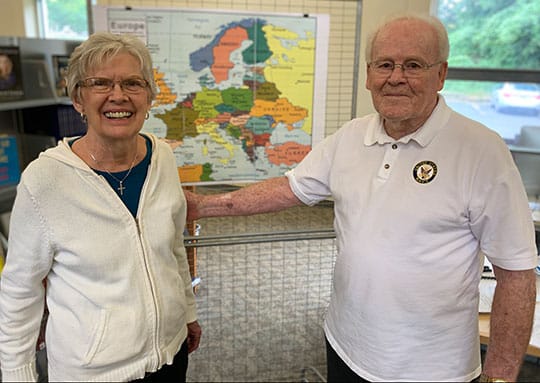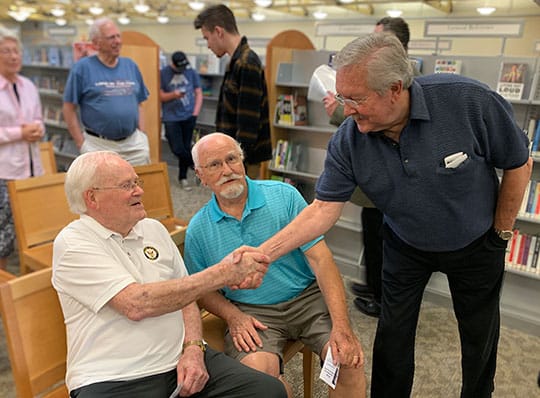
York traveled extensively during the Second Great War. From 1943-1945, he was primarily positioned in the Mediterranean working with the Allies’ Amphibious forces.
On June 6, 1944, the Allies pulled off the largest seaborne invasion in warfare history. For the “D-Day” Normandy Landings, more than 150,000 troops from the U.S., Great Britain, and Canada stormed the beaches of Normandy France in one of the most pivotal battles in the War.
Codenamed “Operation Neptune”, York referred to the D-Day invasion as ‘deadly.’ At the time, York was stationed in Palermo, Sicily, on the opposite coast.
“I was not there, but my brother was so I have a keen interest in the program,” York said of the D-Day invasion.
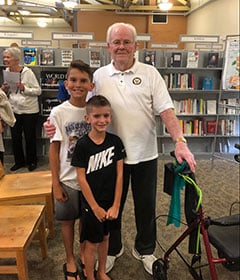
York paused before continuing, “I have a picture of me and my brother and my mother. If I get choked up talking about it, it’s because that was the last time, I ever saw him.”
While it’s hard to attribute an exact number to the mass causalities of WWII, most agree the death toll was anywhere between 50 and 80 million — about 3 percent of the world’s population in 1940. “As Patton said, War is hell. It was, is, and always will be,” York said.
Among a dwindling class of surviving veterans, York considers it important to remember the significance of that dreadful time.
“If it were not for those men in D-Day, we might be speaking German, or Nipponese today,” York said.
D-Day’s success can partly be attributed to a decoy strategy York refers to as “The Great Deception.”
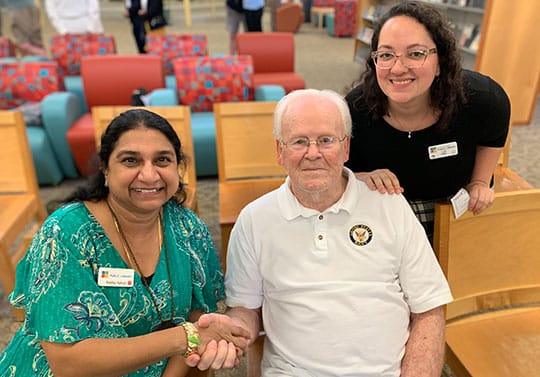
As for his experience in the war, York was mostly stationed off-land. One of the amphibious vehicles he’s perhaps better acquainted with than he’d like to be is the LCT, a landing craft that held a crew of 13. Recalling the two years in which he and 12 other men lived on a LCT, York said, “It was like living in a small house. We were able to cook and get clean water.”
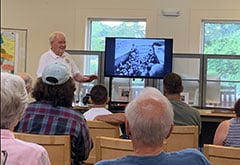
His ride back to the U.S. was also on an LST. York had expected to see combat onboard a boat headed towards Japan, but then, when the Japanese conceded after the nuclear bombing of Hiroshima and Nagasaki, he was never required to sail again.
After the War, York found employment as a furrier, working in major department stores in San Francisco, and then in Atlanta where he met his wife, Dot. After marrying, York settled and began his own fur shop, “York’s Furs”, and the old building remains in business to this day in Buckhead.
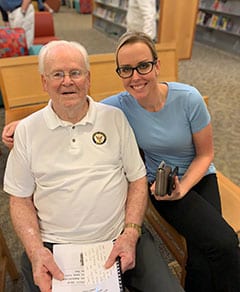
“He is extremely passionate about this and really has so much knowledge. Our community would do well to come out and hear what he has to say,” said Radsha Shok, from the Dacula branch. The library staff is happy to work with York and hopes to preserve the valuable history he shares.
York has dedicated much of his retired life to researching and studying the War that made him into the man he is today. He has written seven novels and continues to write a monthly column in the Gwinnett Citizen. Those interested in learning more can direct their questions to
Sioux2222@gmail.com.
